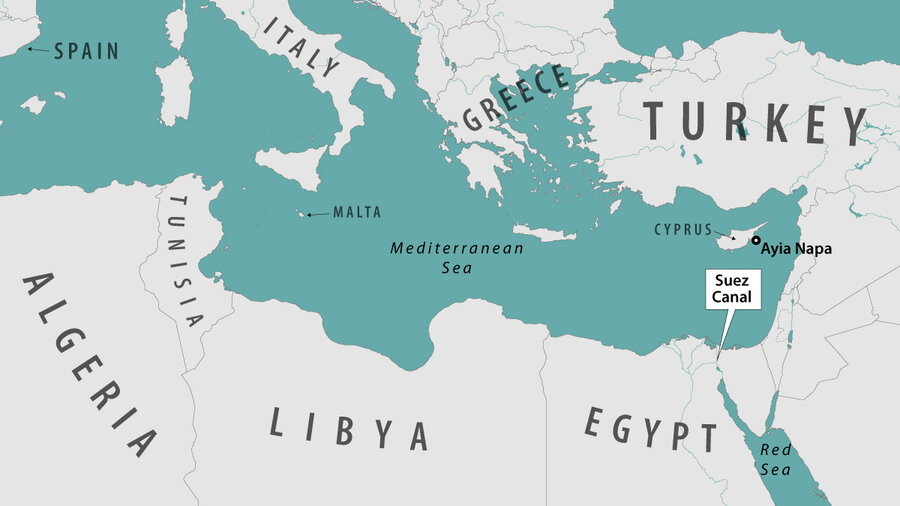As wildfires haunt the American West, Ashland, Oregon, has emerged as a leader in forest management. The city’s bipartisan approach hinges on a cooperative ethos that mitigates both fire risk and ideological divides.
Monitor Daily Podcast
- Follow us:
- Apple Podcasts
- Spotify
- RSS Feed
- Download
 Peter Grier
Peter Grier
Hamilton the endangered donkey will be 3 months old this Saturday.
He’s come a long way in a short time. When he was born in June, the folks at Arnold’s Rescue Center, his Vermont home, weren’t sure he’d make it, according to The Boston Globe. But he lived, and now he’s strong enough to nose a big blue ball around the refuge, ears flapping like a happy hound dog.
He loves the ball. He will play with it for hours. He’s bereft when it deflates.
Hamilton is rare because he’s a purebred Poitou [Pwa-too] donkey, one of only several hundred worldwide. They’re native to France, with big ears, big lips, and a distinctive adult coat.
He’s important because he was conceived using artificial insemination, the first time that’s worked with a Poitou in the United States. That promises a new way to save a draft animal enthusiasts have long tried to help.
Heritage breeds such as the Poitou are important in themselves, and as an artifact of agricultural history. The Livestock Conservancy defines them as animals you’d have found on your great-grandparents’ farm.
Holland chickens were self-foraging birds developed in the early 1900s. They’ve become rare as farms mechanized. Mulefoot hogs, whose ancestors may date to the 1500s, used to range free on open land. That practice, and the open land, no longer exist.
“Heritage animals once roamed the pastures of America’s pastoral landscape, but today these breeds are in danger of extinction,” says the Livestock Conservancy.










